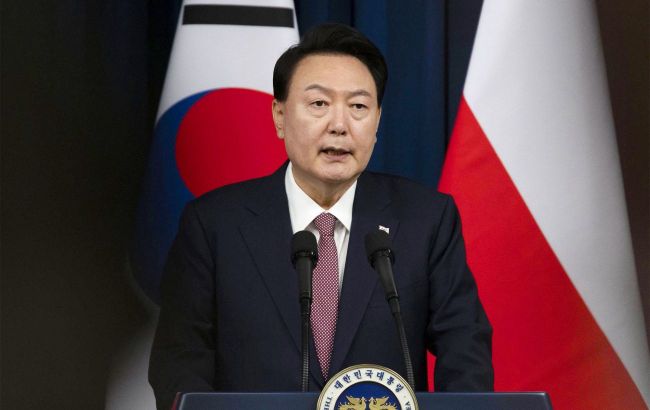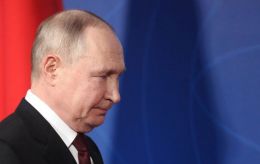Impeached South Korean president avoids arrest with security and military support
 Photo: President of South Korea Yoon Suk Yeol (Getty Images)
Photo: President of South Korea Yoon Suk Yeol (Getty Images)
South Korea's presidential guard and military did not allow investigators to arrest ousted President Yoon Suk Yeol during a tense six-hour standoff at the residence in the heart of Seoul, reports Reuters.
Yoon is under investigation in a criminal case for rebellion caused by his attempt to impose martial law on December 3, which shocked South Korea and led to the issuance of the first arrest warrant for the current president.
"It was judged that it was virtually impossible to execute the arrest warrant due to the ongoing standoff," the Corruption Investigation Office for High-ranking Officials (CIO) said.
CIO officials and police avoided meeting with hundreds of Yoon's supporters who gathered in the predawn hours outside his residence on January 3, vowing to prevent his arrest at the cost of their lives.
Some chanted: “President Yoon Suk Yeol will be protected by the people” and called for the arrest of the CIO head.
The CIO officers, who are leading a joint team of investigators on the coup charges, arrived at the gates of the presidential complex in the morning local time.
A CIO official told reporters that once inside, the CIO and police faced a numerical advantage from the cordon of the Presidential Security Service (PSS) and military personnel assigned to the PSS.
The official added that about 200 people formed a human chain to block the CIO director and police.
The South Korean Ministry of National Defense said the troops were under the control of the Presidential Security Service.
The CIO canceled an attempt to arrest Yoon, citing concerns for the safety of its staff due to the obstruction, and said it “deeply regretted” Yoon's disobedience.
No immunity
Mutiny is one of the few criminal charges from which the South Korean president is not immune. The warrant for his arrest, approved by the court after Yoon ignored numerous summonses to appear for questioning, is valid until January 6.
Yoon has been in isolation since he was impeached and removed from power on December 14.
The interim head of Yoon's People Power Party welcomed the suspension and said the investigation should be conducted without Yoon's detention.
The current warrant gives investigators only 48 hours to detain Yoon after his arrest. Investigators must then decide whether to request an arrest warrant or release him.
Martial law
Yoon shocked Asia's fourth-largest economy and one of the region's fastest-growing democracies with his late announcement that he was imposing martial law to break the political deadlock and root out “anti-state forces.”
Within hours, however, 190 lawmakers defied cordons of troops and police to vote against Yoon's decree. About six hours after his initial decree, Yoon revoked it.
He later issued a strong defense of his decision, claiming that political opponents at home were sympathetic to North Korea and citing unconfirmed allegations of election fraud.
Two South Korean military officials, including Army Commander Park An-su, who was appointed martial law commander during the short-lived declaration, were detained by prosecutors investigating allegations of mutiny.
Kim Yong-hyun, who resigned as Yoon's defense minister after playing an important role in passing the martial law decree, was detained and charged last week with mutiny and abuse of power.

